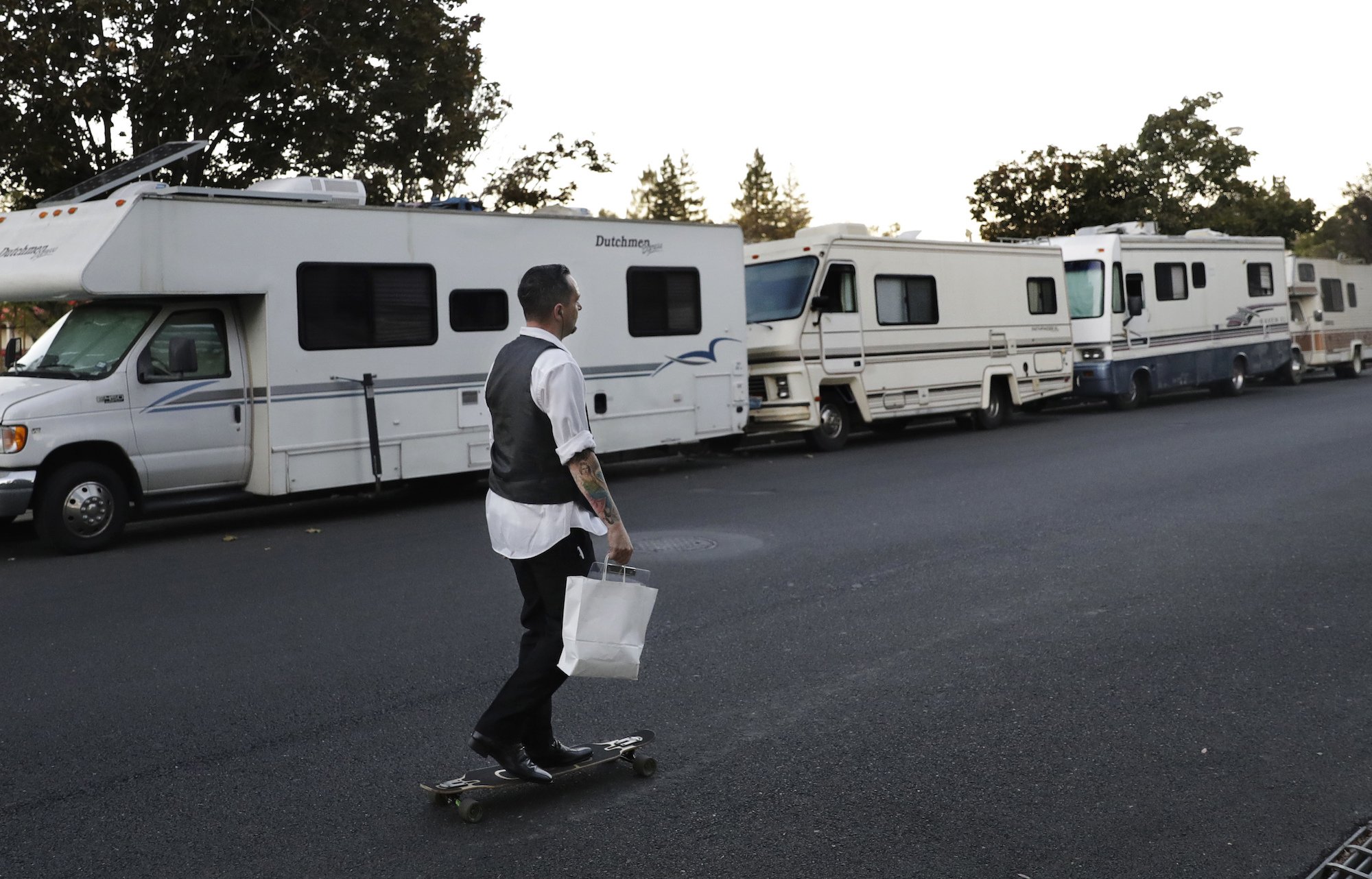 Marcio Jose Sanchez/AP
Marcio Jose Sanchez/AP
- Mountain View, a city in Silicon Valley, will not allow a new office development where Facebook is set to move this fall to have a cafeteria with free food for employees. The restriction aims to increase business for local food retailers.
- San Francisco, home to Twitter, is proposing a similar rule that would ban new workplace cafeterias for the same reason.
- Harry Glaser, cofounder of the Silicon Valley-based data visualization company Periscope Data, says that the ban could be a good idea, arguing that tech companies have a responsibility to engage with and support their communities.
When Facebook moves to a new office complex in Mountain View called the Village, workers will not be able to enjoy a beloved perk: cafeterias with unlimited breakfast, lunch, and dinner.
The city prohibits companies from fully subsidizing meals in the Village, and the rule could spread to other Bay Area cities in the future. Free food is a popular benefit at tech companies throughout San Francisco and Silicon Valley.
This week, San Francisco legislators proposed a similar restriction, the San Francisco Examiner reported. If passed, it would adjust zoning laws to ban new construction of on-site workplace cafeterias. (The ban wouldn’t be retroactive, however, so on-site food at companies like Google and Twitter would still be available.)
In both San Francisco and Mountain View, supporters of the restrictions argue that the cafeterias take away business from local restaurants and cafés because they discourage workers from leaving their offices.
Harry Glaser, a cofounder of data visualization platform startup Periscope Data, argues that banning workplace cafeterias in the Bay Area might not be such a bad idea.
Tech workers have a tendency to live in a bubble, making it easy for them to not engage with their city, he said.
“In San Francisco, the supervisors are worried about what they call ‘app culture,’ which is: tech employees take a private bus to work, get off the bus, eat lunch in the cafeteria at work, get back on their bus and go home, and then order dinner from an app,” Glaser told Business Insider. “And so while they’re living in a community, they’re not engaging in that community, and I do think that’s unfortunate.”
While Periscope Data doesn’t have an on-site cafeteria, the company caters all of its food from local businesses, which he sees as a better alternative to hiring an in-house chef or working with a non-local supplier. Glaser added that he thinks it’s positive that the Bay Area is having an open conversation about how tech companies can affect their cities, for better or for worse.
“I do think it’s reasonable for the community to expect us to engage,” he said, whether that’s voting, volunteering, or buying lunch at an independent café down the street.
Mountain View’s legislation — and the proposal in San Francisco — is part of a larger debate about how large tech companies may have contributed to urban issues, like homelessness, high housing prices, and traffic. Mountain View, Cupertino, and San Francisco, California, are now considering “head taxes,” which would tax big companies based on their number of employees. The revenue would go toward projects that address transportation and housing isssues.
In San Francisco’s Mid-Market neighborhood, local food retailers have especially struggled to gain foot traffic because of the prevalence of free workplace meals, according to Gwyneth Borden, the executive director of the Golden Gate Restaurant Association, an organization supporting the rule.
Twitter, which as of 2015 employed about 2,000 people in San Francisco and is one of the biggest tech employers in the Mid-Market area, opened its headquarters in the neighborhood in 2012. Since the new rule wouldn’t apply to existing on-site cafeterias, it would affect Twitter — and other tech companies like it — only if it decided to expand its footprint in the city. Twitter declined to comment on the proposed legislation.
Facebook also declined to comment on the ban, but a representative, Jamil Walker, said the company found its new Mountain View location attractive because of the proximity to public transit, housing, shops, and restaurants.

